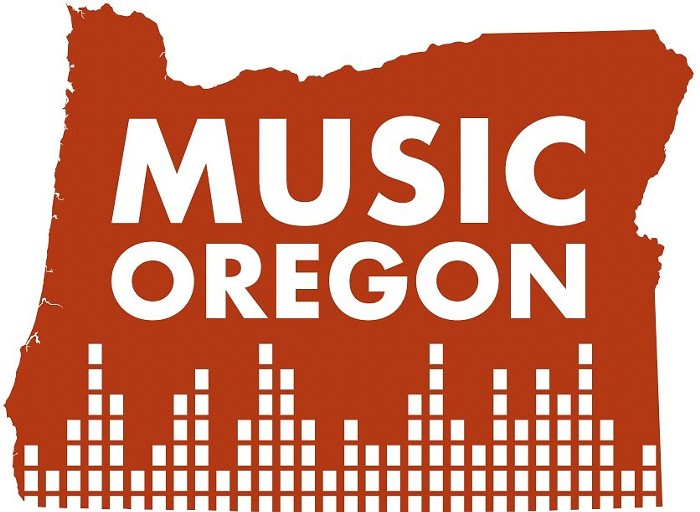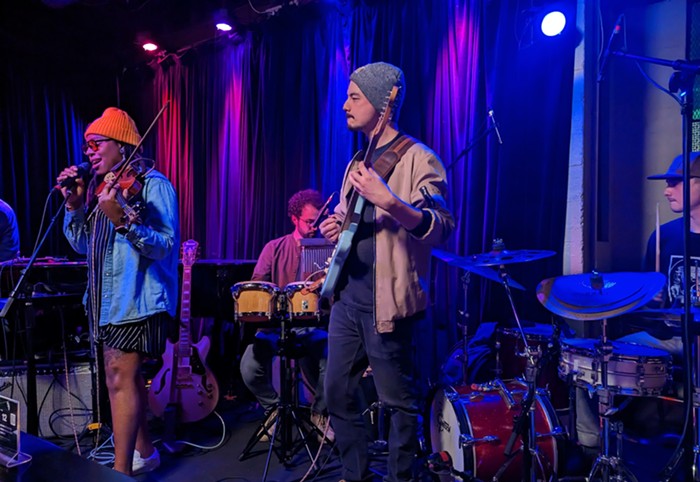It's hard to talk about Janelle Monáe without bringing up Outkast in some capacity. After all, it was an over-anxious Big Boi who cornered her one night after an Atlanta open mic and started the wheels spinning. From there it was an appearance on the Idlewild soundtrack, a distribution deal courtesy of the deep pockets of one Puff Daddy, and a lengthy list of admirers, from tonight's glitch-soul headliner, Jamie Lidell, to the ultimate icon of all things pintsized, sexy, and purple—Prince. But as a performer, Monáe is far from just another pop starlet propped up by the (male) hands of established industry heavy hitters. The Atlanta-based singer is on a whole different planet from her contempories, a visionary artist with an astonishing gift for penning off-kilter jams that scorch the R&B/pop landscape with a voracious fury.
Her re-released debut, The Chase Suite, and Monáe's steez as a whole, orbits around Fritz Lang's 1927 Metropolis, and while it might boggle the mind that a modern pop record—blessed by the gilded paw of Diddy—is heavily influenced by an 81-year-old German silent film, one glance at the Metropolis tagline—"There can be no understanding between the hands and the brain unless the heart acts as mediator"—reveals what Monáe views as similarities between her life and this classic work of cinema. "I thought it was very life changing," she explains of the film. "It spoke out to me. I saw lots of parallels to me growing up in Kansas, and how there's that constant struggle still with the haves and the have-nots."
It's an odd sell, to marry a genre of music that begs to grasp the pop music airwaves alongside lyrical content that is more Comic-Con than 106 & Park, but Monáe is unashamed of these influences: "I'm recently getting more involved in science-fiction: Isaac Asimov and Octavia Butler books, things like that." Amid her ambitious, if not downright visionary, futuristic jams, is a deep-rooted human emotion (the heart as mediator, if you will)—one best observed in the stripped-bare soul of "Sincerely, Jane." Unlike most of her other material, this song hits closer to home, echoing with an urban frustration similar to Marvin Gaye's "Inner City Blues (Make Me Wanna Holler)" with lyrics such as: "I've seen them shootin' up funerals in they Sunday clothes/Spending money on spinners but won't pay college loans/And all you gangers and bangers rollin' dice and taking lives, in a smoky dark."
The Chase Suite is just your typical sci-fi action adventure set to frantic blasts of thumping bass and a crooning vocalist who is one part pop star in waiting, and—if the opening track "March of the Wolfmasters" is to be believed—one part cyborg (number 57821), a machine programmed to feel no emotion, yet who falls for a human and thus risks destruction for following her heart. It doesn't make much sense, but in a genre of auto-tuned plastic pop star sheen and an unhealthy devotion to commerce over art, Monáe is light years ahead of the pack. She might not even be on the same planet, but wherever she is, it's a blinding glimpse of the future, and power, of pop music.



















